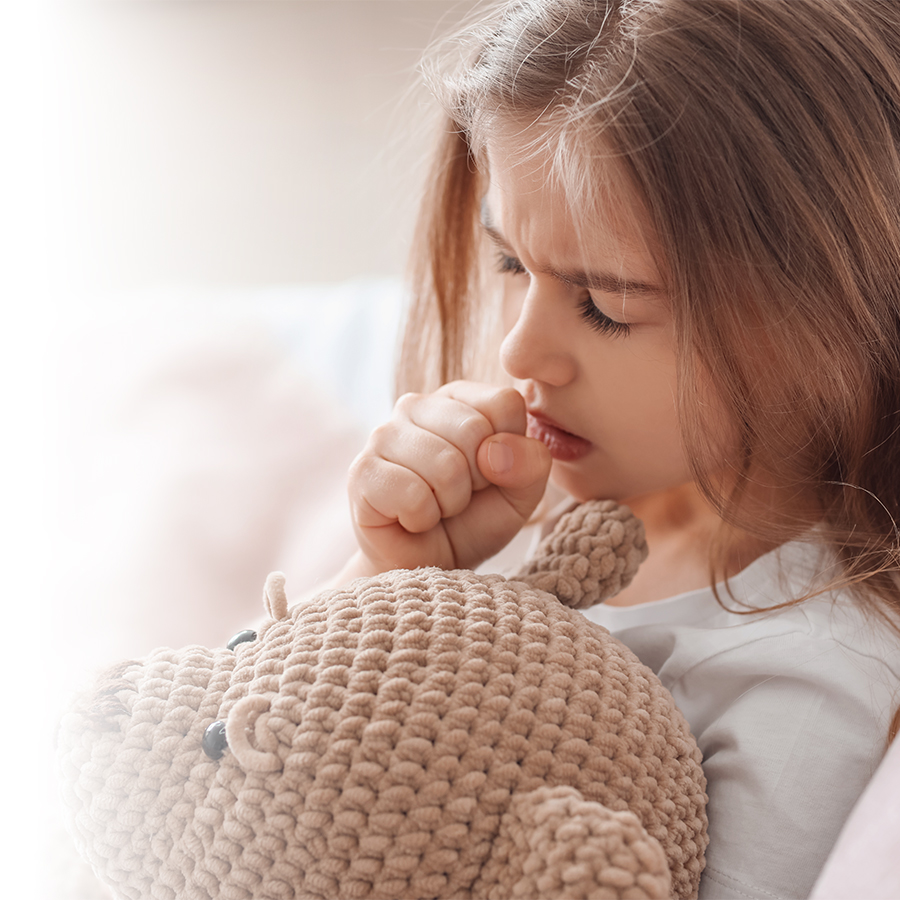Although coughing is one of the body's natural defence mechanisms, it is rarely welcomed by the family, especially when it affects children!
Coughing: an unpleasant symptom
What parent hasn't lived through sleepless nights or days overcast by the fact that his/her child is inconvenienced by a nasty cough? Unfortunately, a cough is par for the course during childhood. It affects most small children several times a year. Therefore, this problem is the subject of a number of consultations at the pharmacy by concerned parents searching for solutions.
A cough can hamper children's ability to play, eat, sleep or function at daycare or school. That being said, concerned parents who want to offer their little one relief must exercise caution when it comes to providing cough medication. Many of them will have to turn to more natural solutions. Here is some information on the subject.
Illnesses that can cause a cough
A cold and the flu are infections caused be different viruses, and can often be distinguished by the nature and severity of symptoms. However, they do have some common symptoms, including a cough, which can sometimes be very bothersome and persistent!
There is no effective vaccine against a cold. However, a child can be vaccinated against the flu in anticipation of winter, to reduce the risk of the inconveniences associated with this infection, including a cough.
Other types of respiratory infections can also cause a cough, such as laryngitis, bronchitis, pneumonia, and whooping cough.
Additionally, other illnesses (non infectious) can cause a cough in children, for example:
- allergies
- asthma
- gastroesophageal reflux, and
- cystic fibrosis
A persistent or chronic cough (lasting longer than two to three weeks) is generally indicative that this is not due to a viral infection. A medical diagnosis is necessary to accurately determine the source of the problem. Appropriate medical monitoring must be initiated accordingly.
Cough medicines
There are a number of cough medicines available at the pharmacy to relieve coughing. For a dry cough, formulations containing dextromethorphan are often used. For a moist cough, an expectorant called guaifenesin is used. These medications are not recommended for children under the age of six. However, they can be used in older children under the advice of a pharmacist, and by scrupulously respecting dosage.
There are interesting alternatives to conventional cough syrups on pharmacy shelves. Most of them contain homeopathic or natural products, including in syrup form. It is advisable to ask a pharmacist for advice before using them, to ensure that this is the best option for a child with a cough.
Lozenges for children, even if they are intended to relieve a sore throat, can help a cough. Again, it's better to speak to a pharmacist, who can help you to make a well-informed choice and provide advice on how to use them. Note that children under the age of six shouldn't use them.
When to seek medical attention
Certain circumstances may justify a prompt medical visit. For example, if your child:
- is under four months old
- coughs and vomits
- chokes, has difficulty breathing or breathes differently than usual
- refuses to drink or eat
- has blood or mucus in his/her sputum
- has had a fever for more than 48 hours
- presents any other worrisome or unusual symptom
When in doubt, call Info-Santé to discuss the situation.
A few good tips for informed parents
If your child suffers from a temporary cough due to a viral infection, focus on these measures:
- Ensure that he/she stays well hydrated; have him/her drink plenty of water
- If it is age-appropriate, give him/her hot beverages or foods that are likely to soothe the cough, such as hot chocolate or soup
- Ensure that the air in your home is not too dry, particularly in his/her room. Consider using a humidifier
- Don't forget that, to relieve the ailments of small children, there's nothing better than a parent's tender loving care. Administer without moderation!
Don't hesitate to speak to your pharmacist for additional information about coughing and the ways to relieve it.

